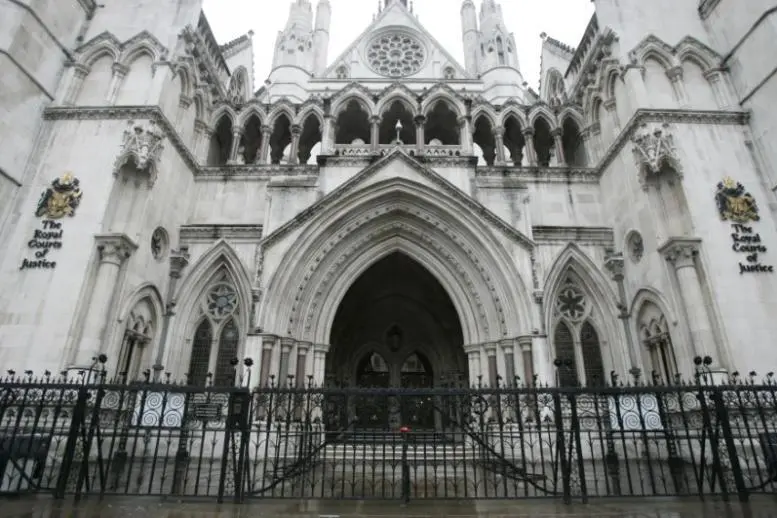PHOTO
(Updates with quotes as court hearing begins)
By Michael Holden
LONDON, Oct 13 (Reuters) - A legal bid to force the British government to seek parliamentary approval before starting the formal process of leaving the European Union began on Thursday, with ministers calling it an anti-democratic tactic to delay Brexit.
Prime Minister Theresa May has said she will trigger Article 50 of the EU Lisbon Treaty, the mechanism by which Britain begins a two-year process to leave the bloc, by the end of March next year and there will be no parliamentary vote beforehand.
But she is facing a legal challenge over whether the government can use a historical power known as royal prerogative, to decide when, how and whether to make this decision.
David Pannick, the lawyer representing the lead claimant, investment manager Gina Miller, told the High Court the case raised questions of fundamental constitutional importance.
He said the government was wrong to suggest that Miller was trying to change the outcome of the June 23 referendum in which 52 percent voted to leave the EU and 48 percent to remain. The case was only about the right to invoke Article 50, he said.
"The court is not concerned with the political outcome of withdrawing this country from the European Union," Pannick said.
"Our legal claim is in support of parliamentary sovereignty. What it does with that parliamentary sovereignty is a matter for parliament," he said, adding that parliament might approve a bill to invoke Article 50, reject it, introduce amendments on timing or to require the government to report back to lawmakers.
The hearing comes amid wider calls for lawmakers to have a vote over the details of Brexit negotiations. Many politicians argue the referendum revealed only that Britons wanted to leave the bloc, but not how that should be done.
Concern is growing among some in parliament and in business that May will go for a "hard Brexit", with Britain leaving the EU's single market and imposing tight immigration controls, damaging trade and investment.
Sterling
GBP=D4
has fallen to 31-year lows since May announced the date she intended to trigger Article 50, and this week's court case is being closely watched by market players who believe that if there is a vote in parliament, the greater the chance there is of a "soft Brexit" or delays to the process.
May has accused those behind the action, some of whom openly admit they did not want Britain to leave the EU, of trying to subvert the referendum result. The claimants reject this, saying they do not want to hinder or hijack the process but merely bring legal certainty and proper democratic scrutiny.
"I don't see how a court case can block Brexit," Miller, told Reuters last week. "I am saying we have parliament, scrutiny and then a vote rather than an antiquated power which is secretive and bypasses parliament."
(Editing by Estelle Shirbon) ((michael.holden@thomsonreuters.com; +44 207 542 3213; Reuters Messaging: michael.holden.thomsonreuters.com@reuters.net))
By Michael Holden
LONDON, Oct 13 (Reuters) - A legal bid to force the British government to seek parliamentary approval before starting the formal process of leaving the European Union began on Thursday, with ministers calling it an anti-democratic tactic to delay Brexit.
Prime Minister Theresa May has said she will trigger Article 50 of the EU Lisbon Treaty, the mechanism by which Britain begins a two-year process to leave the bloc, by the end of March next year and there will be no parliamentary vote beforehand.
But she is facing a legal challenge over whether the government can use a historical power known as royal prerogative, to decide when, how and whether to make this decision.
David Pannick, the lawyer representing the lead claimant, investment manager Gina Miller, told the High Court the case raised questions of fundamental constitutional importance.
He said the government was wrong to suggest that Miller was trying to change the outcome of the June 23 referendum in which 52 percent voted to leave the EU and 48 percent to remain. The case was only about the right to invoke Article 50, he said.
"The court is not concerned with the political outcome of withdrawing this country from the European Union," Pannick said.
"Our legal claim is in support of parliamentary sovereignty. What it does with that parliamentary sovereignty is a matter for parliament," he said, adding that parliament might approve a bill to invoke Article 50, reject it, introduce amendments on timing or to require the government to report back to lawmakers.
The hearing comes amid wider calls for lawmakers to have a vote over the details of Brexit negotiations. Many politicians argue the referendum revealed only that Britons wanted to leave the bloc, but not how that should be done.
Concern is growing among some in parliament and in business that May will go for a "hard Brexit", with Britain leaving the EU's single market and imposing tight immigration controls, damaging trade and investment.
Sterling
May has accused those behind the action, some of whom openly admit they did not want Britain to leave the EU, of trying to subvert the referendum result. The claimants reject this, saying they do not want to hinder or hijack the process but merely bring legal certainty and proper democratic scrutiny.
"I don't see how a court case can block Brexit," Miller, told Reuters last week. "I am saying we have parliament, scrutiny and then a vote rather than an antiquated power which is secretive and bypasses parliament."
(Editing by Estelle Shirbon) ((michael.holden@thomsonreuters.com; +44 207 542 3213; Reuters Messaging: michael.holden.thomsonreuters.com@reuters.net))





















